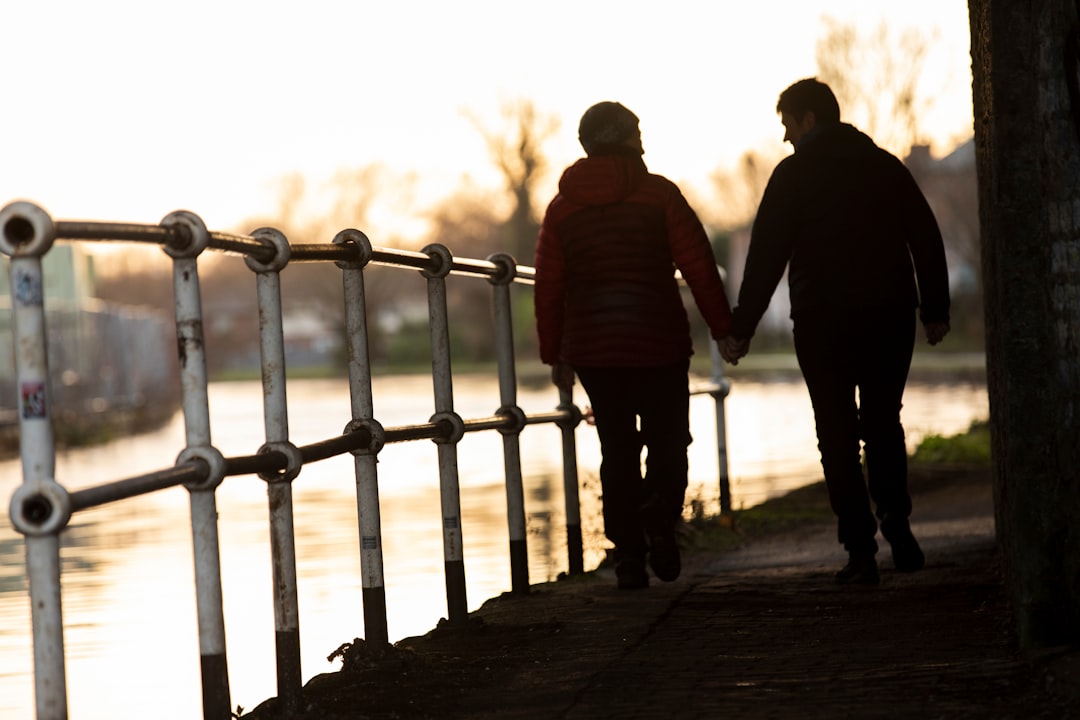Relationships come in all shapes and sizes, and no two couples are exactly alike. Each couple has their own unique dynamic, communication style, and way of navigating challenges. However, there are certain patterns and archetypes that can help us better understand and categorize different types of couples.
In this guide, we’ll explore some of the most common couple archetypes and how they can impact a relationship. Whether you’re in a long-term partnership, just starting out, or seeking couples therapy, understanding these archetypes can provide valuable insight into your relationship.
The Power Couple

The power couple is often seen as the epitome of success and achievement. This archetype is characterized by two individuals who are highly ambitious, driven, and successful in their respective fields. They are often seen as a dynamic duo, with each partner supporting and pushing the other to reach their full potential.
While this archetype may seem ideal, it can also come with its own set of challenges. The pressure to constantly achieve and maintain a certain level of success can lead to high levels of stress and competition within the relationship. It’s important for power couples to find a balance between their personal and professional lives and to prioritize their relationship amidst their individual goals.
The Complementary Couple

The complementary couple is made up of two individuals who have different strengths and weaknesses that complement each other. They often have a strong sense of teamwork and are able to work together to achieve their goals.
This archetype can be beneficial in a relationship as each partner brings something unique to the table. However, it’s important for complementary couples to communicate openly and avoid falling into traditional gender roles. It’s also important for each partner to maintain their individual identity and not become too dependent on their partner’s strengths.
The Independent Couple

The independent couple is characterized by two individuals who have their own separate lives and interests outside of the relationship. They value their independence and prioritize their individual goals and hobbies.
While this archetype can be healthy and beneficial for a relationship, it’s important for the couple to find a balance between their individual lives and their relationship. It’s also important for them to communicate openly and make time for each other, even if they have busy schedules.
The Traditional Couple

The traditional couple is often seen as the “classic” or “ideal” relationship. This archetype is characterized by a heterosexual couple where the man is the breadwinner and the woman takes care of the household and children.
While this archetype may work for some couples, it’s important to recognize that it is not the only way to have a successful relationship. It’s important for couples to challenge traditional gender roles and expectations and find a dynamic that works for them as individuals.
The High Conflict Couple

The high conflict couple is characterized by frequent arguments, disagreements, and tension in the relationship. These couples often struggle with communication and may have difficulty resolving conflicts.
If you find yourself in a high conflict relationship, it’s important to seek help from a couples therapist. With the right tools and techniques, you and your partner can learn to communicate effectively and resolve conflicts in a healthy way.
The Long-Distance Couple

The long-distance couple is characterized by two individuals who are in a committed relationship but live in different locations. This archetype can be challenging as it requires a lot of trust, communication, and effort to maintain the relationship.
If you’re in a long-distance relationship, it’s important to prioritize communication and make time for each other, even if you can’t physically be together. It’s also important to have a plan for eventually living in the same location and to have regular visits to maintain the connection.
The Blended Family

The blended family is made up of two individuals who have children from previous relationships. This archetype can come with its own unique challenges as the couple navigates blending their families and creating a new dynamic.
It’s important for blended families to communicate openly and involve all family members in decision-making processes. It’s also important for the couple to prioritize their relationship and make time for each other amidst the demands of parenting.
The LGBTQ+ Couple

The LGBTQ+ couple is made up of two individuals who identify as part of the LGBTQ+ community. This archetype can come with its own set of challenges as the couple navigates societal expectations and discrimination.
It’s important for LGBTQ+ couples to communicate openly and support each other in navigating any challenges they may face. It’s also important for them to find a community of support and to prioritize their relationship amidst any external pressures.
The Empty Nesters

The empty nesters are a couple whose children have grown up and moved out of the house. This archetype can be a major transition for couples as they adjust to a new dynamic and potentially have more time to focus on their relationship.
It’s important for empty nesters to communicate openly and find new ways to connect and spend time together. This can be a great opportunity for couples to rediscover each other and strengthen their relationship.
The Newlyweds

The newlyweds are a couple who have recently gotten married and are in the honeymoon phase of their relationship. This archetype is characterized by intense feelings of love and excitement, but it can also come with its own set of challenges as the couple adjusts to married life.
It’s important for newlyweds to communicate openly and set realistic expectations for their relationship. It’s also important for them to continue to prioritize their relationship and make time for each other amidst the demands of daily life.
Couples Activities in the Sarasota, FL and Venice, FL area (we do not endorse any particular vendors)
The Power Couple:
- Attend a business networking event at The Hub in downtown Sarasota to expand your professional connections.
- Indulge in a couple’s spa day at The Ritz-Carlton, Sarasota, and pamper yourselves with luxurious treatments.
- Volunteer together at a local charity organization like All Faiths Food Bank or Habitat for Humanity.
The Complementary Couple:
- Take a cooking class at The Culinary Institute of America in Hyde Park, Sarasota, and learn to create delicious dishes together.
- Explore the hiking trails at Oscar Scherer State Park in Osprey, FL and enjoy the beautiful nature scenery.
- Visit the Venice Art Center and immerse yourselves in the vibrant art scene of downtown Venice.
The Independent Couple:
- Rent kayaks from Siesta Key Watersports and explore the serene waters of the mangrove tunnels in Sarasota Bay.
- Take separate yoga or fitness classes at studios like Studio South Fitness or Yoga from the Heart and meet up afterward for a healthy lunch.
- Plan a romantic getaway to one of the secluded beaches in Venice such as Caspersen Beach or North Jetty Park.
The Traditional Couple:
- Enjoy a romantic dinner at Café Venice Restaurant & Wine Bar and savor classic Italian cuisine in the heart of Venice.
- Take ballroom dance lessons at the Fred Astaire Dance Studio in Sarasota and learn timeless dances together.
- Take a leisurely stroll along the Venice Fishing Pier, hand in hand, and enjoy the sunset over the Gulf of Mexico.
The High Conflict Couple:
- Seek couples therapy with a reputable therapist in the Sarasota area, such as Davenport Psychology Venice.
- Attend a couples’ communication workshop or seminar at The Gottman Institute to improve conflict resolution skills.
- Take a calming boat tour with Venice Boat Tours through the peaceful waterways of Venice and utilize the serene environment for open communication.
The Long-Distance Couple:
- Plan a surprise visit to your partner’s city and explore the beautiful Sarasota Jungle Gardens together.
- Use technology to have regular video calls and virtual date nights. Get creative and have a virtual dinner date with food delivery from your favorite local restaurant.
- Meet halfway between Sarasota and your partner’s location at Venice Beach and enjoy a romantic picnic on the shore.
The Blended Family:
- Spend a fun-filled day at the Sun-N-Fun Lagoon Water Park in Sarasota, where kids and adults can enjoy water slides, pools, and splash playgrounds.
- Organize a family-friendly picnic at Bayfront Park in Sarasota, where everyone can enjoy the playground, water views, and outdoor activities.
- Have a movie night at home and let each family member choose their favorite movie to watch together.
The LGBTQ+ Couple:
- Attend LGBTQ+ pride events in Sarasota, such as Sarasota Pride or Harvey Milk Festival, and celebrate your identities together.
- Join LGBTQ+ support groups like Prism Youth Initiative or PFLAG Sarasota/Manatee to connect with the local LGBTQ+ community.
- Explore LGBTQ+-friendly establishments in downtown Sarasota, like Oasis Restaurant and Bar or Gator Club, for a night out.
The Empty Nesters:
- Rent bicycles from The Bicycle Center in Venice and enjoy a scenic ride along the Legacy Trail, which stretches from Venice to Sarasota.
- Take dance lessons at the Arthur Murray Dance Studio in Sarasota and rekindle the romance on the dance floor.
- Plan a weekend getaway to Marie Selby Botanical Gardens in Sarasota and immerse yourselves in the beauty of the flora and fauna.
The Newlyweds:
- Embark on a romantic sunset cruise with LeBarge Tropical Cruises in Sarasota Bay and enjoy stunning views of the coast.
- Take a private cooking class with Chef Rolf at The EnRich Bistro and learn to prepare a special meal together.
- Visit the Ringling Museum in Sarasota and wander through the enchanting gardens, admiring the artwork and architecture.
Remember to check for specific timings, availability, and reservations for the activities mentioned. Enjoy your time exploring and strengthening your relationship in the Sarasota, FL and Venice, FL area!
Conclusion
No matter what type of couple you and your partner may be, it’s important to recognize that every relationship is unique and comes with its own set of challenges and strengths. By understanding different couple archetypes, you can gain valuable insight into your relationship and work towards building a strong and healthy partnership.
If you’re struggling in your relationship, don’t hesitate to seek help from a couples therapist. With the right tools and techniques, you and your partner can overcome challenges and build a strong and lasting connection.
References
- Allen, J. J., Haertel, C., & Connolly, J. (2014). Power couples: Basic gender and family differences in the strength of the income–achievement association. Social Science Research, 43, 121-143. DOI: 10.1016/j.ssresearch.2013.07.007
- Burgoyne, C. B., & Reibstein, J. (2018). Complementarity in couples’ leisure time activity participation. Journal of Leisure Research, 50(3), 251-266. DOI: 10.18666/JLR-2018-V50-I3-8782
- Gierveld, J., & Berkman, L. F. (2016). Living arrangements, positive relationships, and loneliness among older adults: Does gender matter? Sex
















